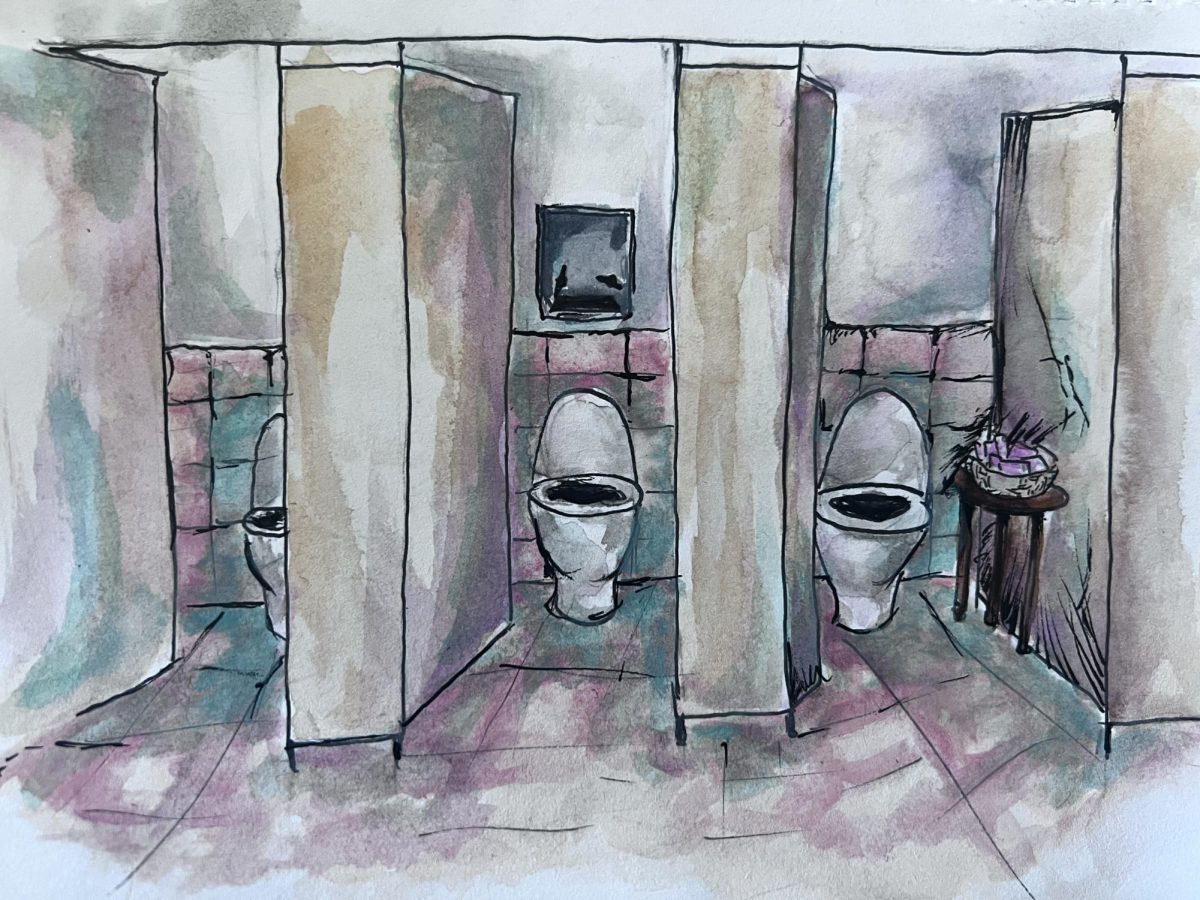Menstruation is an inconvenience to say the least; often painful and uncomfortable, especially at a young age and in a school setting, and especially considering the constant stigma and embarrassment attached to it. What could possibly make this afflictive monthly experience worse? Not having the materials one needs to deal with it properly.
This is precisely why menstrual products should be deemed a required amenity in GPS female and gender neutral restrooms, akin to toilet paper. Menstrual equity is an issue often overlooked and stigmatized within our society, and one of the first steps in making a dent in the problem is ensuring we have the proper care available in our immediate community. Every menstruating individual is deserving of and entitled to safe and dignified cycles.
Students should not have to leave the restroom simply to acquire the necessary products. As it stands today, without easy-access pads and tampons right there in the bathrooms, students must get to and from the health center, nurses’ office, or their locker (often via flights of stairs) to get what they need. Although upon first consideration this may not seem like a big deal, these trips back and forth across the hallways can be uncomfortable, embarrassing, and even painful whilst undergoing the effects of a period. Not only that, it takes up valuable class time by lengthening restroom trips.
Menstrual hygiene is a crucial element to the general health and well-being of students, and people throughout the school can attest to this: In an anonymous survey conducted within a portion of menstruators at GHS, the statistics reflect this sense of agreement, with 90 percent of respondents stating that they would feel more comfortable if these products were available right in the restrooms. A number of short written responses are indicative of this consensus, voicing how vexatious the current situation really is. One student writes, “There is no easy access to menstrual products in this school.
In an emergency, you have no way to get to the nurses’ office fast enough unless you happen to be on the first floor.” Additionally, over 65 percent of respondents stated they feel that menstrual equity is a neglected topic in the district at large. Another individual advocates for “available space and understanding around having your period,” while others complain of the awkwardness or embarrassment surrounding having to ask the nurses for pads or tampons.
Isn’t student comfort crucial to widespread success in an academic setting? How can a student without the proper physical care focus on doing well in their classes? When a student is in pain or discomfort, too embarrassed to ask for help, and bleeding through deficient measures of protection, how can they possibly shift their attention to learning? These are the questions we need to ask ourselves when evaluating this issue.
There are means of distribution by which these products can become available; wall-mounted boxes, storage cabinets, dispensers, and even baskets are all relatively inexpensive options to consider. There remains, of course, the counter-claim that students will not behave responsibly with these provisions; theft, vandalism, etc. being potential issues. This argument, however, is not urgent enough to negate this cause. There will always be a few outliers in these scenarios. Individuals who choose to react negatively, and behave badly, cannot be the sole reason that medical-grade devices are not provided when and where they are needed. Why should a few irresponsible students be enough to restrict everyone else?
The school restrooms are dirty, vandalized, and mistreated as is; if anything, giving students what they need, and granting them the chance to be responsible, will decrease rates of this obnoxious behavior, because when examining the survey’s data, it is clear that people will feel seen, heard, and supported if this is taken care of.
Moreover, this issue is actually a hygiene concern; toilet paper is not an adequate means of protection, but is frequently used under duress due to this lack of proper material. One survey-taker responded with “I don’t like having to go to the health center with toilet paper”, describing this desperate measure as “a makeshift tampon” that is “hardly comfortable.” Toilet paper simply isn’t designed to properly absorb period flow. Using it in place of a real product can lead to irritation, infection, and other health-related issues. In short, having to use toilet paper, even for a short amount of time, is not advisable, and students should not have to feel forced to do that.
Installing feminine hygiene product dispersion in GHS bathrooms would be a prudent use of funding. Dozens of women’s organizations advocating for menstrual education and equity are available to help make this a reality. Taking the steps to alleviate this community issue can lead to a better understanding of periods on a larger scale, and, most importantly, ensure student comfort.
































leora ulrich • Mar 6, 2024 at 10:15 am
Excellent and relevant points in this article. I’d be happy to work on any solutions to this issue!